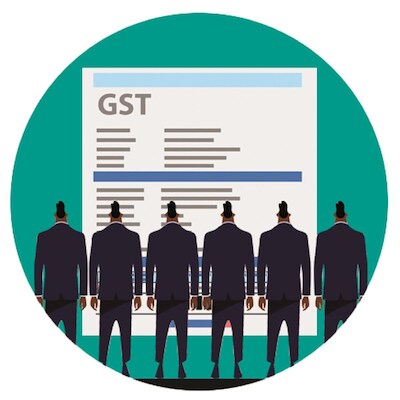[ad_1]
The six-member Group of Ministers (GoM), chaired by Bihar Deputy Chief Minister Samrat Choudhary, will convene in Goa on Tuesday and Wednesday to discuss tax rates for over 100 products, including fertilisers, handloom goods, and textiles, according to sources.
The proposals from the panel will serve as the foundation for a report to be presented at the 55th Goods and Services Tax (GST) Council meeting in November. Discussions concerning real estate will also include a compensation scheme that could substantially impact the sector. “The meeting is expected to review the implications of rate rationalisation for 90-100 items, including real estate and rate assessments, which are key topics for discussion,” said a source directly familiar with the matter.
The panel includes Uttar Pradesh Finance Minister Suresh Kumar Khanna, Rajasthan Health Services Minister Gajendra Singh Khimsar, and Kerala Finance Minister K N Balagopal.
Currently, the GST operates under a four-tier structure with slabs at 5 per cent, 12 per cent, 18 per cent, and 28 per cent.
Essential items are either exempt or taxed at the lowest slab, while luxury and demerit goods are subject to the highest slab.
Luxury and sin goods incur an additional cess on top of the highest 28 per cent rate.
“Rationalising GST rates may not be an easy task for the GoM committee, as socio-economic factors will play a crucial role. While adjustments to specific product rates may be possible, major reforms —such as merging the 12 per cent and 18 per cent or the 12 per cent and 5 per cent rates — may take time,” said Harpreet Singh, partner at Deloitte India. “Altering the list of exempt essential items of daily consumption could also prove challenging, as it may result in blocked input tax credits,” Singh added.
Although there have been discussions about merging the 12 per cent and 18 per cent tax slabs, no proposals have been made thus far.
Currently, the average GST rate is around 12.2 per cent, which has fallen below the revenue-neutral rate of 15.3 per cent, prompting the need to initiate discussions on GST rate rationalisation.
Insider sources indicate that the panel will prioritise simplifying tax rates for the real estate sector, which has long sought greater clarity on GST rates for construction materials and services.
In the August meeting, the ministerial panel largely agreed to maintain the existing four-slab tax structure; however, they requested that the Council-nominated fitment panel analyse the revenue implications of certain items and gather the necessary data.
First Published: Sep 24 2024 | 1:15 AM IS
[ad_2]
Source link

